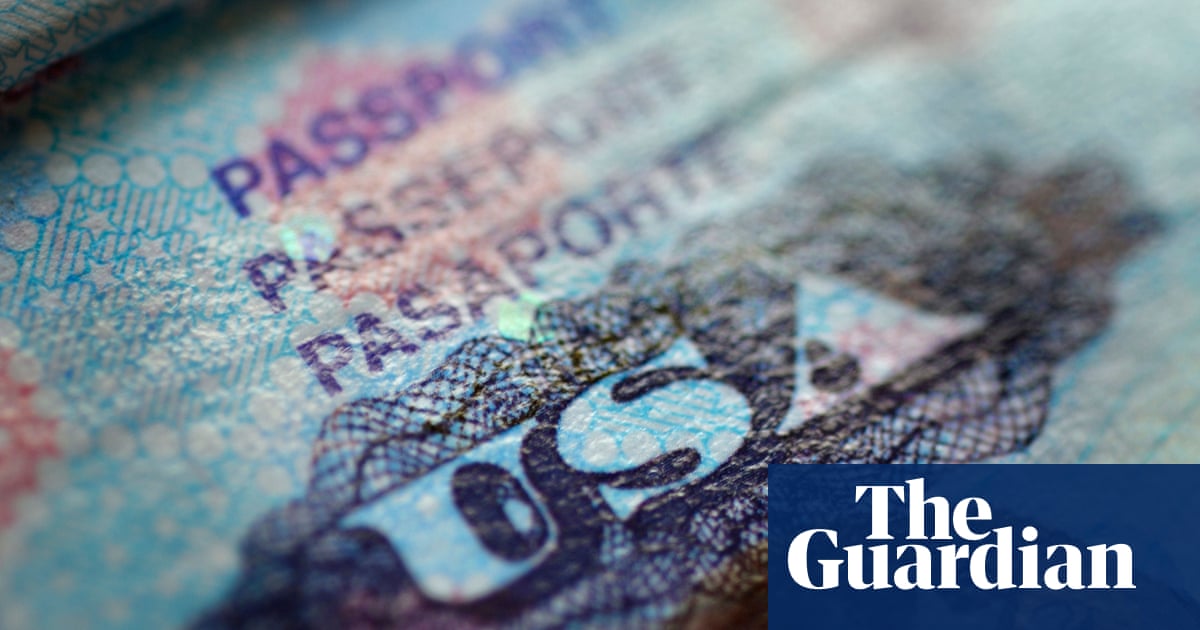
Former Americans who have renounced their citizenship have launched a class-action lawsuit suing the US government for what they argue are exorbitant and unconstitutional costs of relinquishing their passports.
The lawsuit, filed on Wednesday by four renounced US citizens in a federal court in Washington DC, accuses the US of wrongfully profiting from the “astronomical” fee it charges those who voluntarily cease to be Americans. Since 2014, Americans abroad who no longer wish to remain citizens, or who can no longer afford to meet the notoriously onerous US tax demands, have been forced to pay a “renunciation fee” of $2,350.
The fee, the lawsuit claims, is “arbitrary, capricious and illegal because, among other things, it was used to fund governmental functions completely unrelated to renunciation services in violation of federal law”.
Precise numbers are not known, but it is thought that there are 5 million to 9 million US citizens living abroad. Some are expatriates who moved for work or in pursuit of a new life, others are “accidental Americans” – they were born in the US, automatically acquiring citizenship, but have never lived in the country for any length of time.
The US burdens its citizens abroad with some of the most punishing requirements of any country in the world. It shares with Eritrea the unique distinction of demanding that all its citizens, no matter where they live, file annual returns to the tax authorities.
Among those who have rebelled against the demands and renounced citizenship is the former UK prime minister Boris Johnson, who called the tax demands on him “absolutely outrageous”. He renounced in 2017 when he was foreign secretary.
Since 2010, when the Foreign Account Tax Compliance Act (Fatca) was introduced, banks around the world have been forced to report to the Internal Revenue Service (IRS) on the activities of anyone they suspect of being American. That can make it difficult for people to open new bank accounts or undertake routine financial transactions without completing cumbersome paperwork.
As a result of Fatca, applications to renounce citizenship have been on the rise, but so too have costs. Until 2010, the process of severing formal ties with the US was free, increasing to $450 until the sum suddenly shot up to the current $2,350 in 2014.
The state department has said it intends to reduce the burden to $450 once again, but has yet to do so. The new class action estimates that there might be more than 30,000 people who over the past decade have paid the “excessive” $2,350 fee and it calls for them to be at least partially reimbursed.
“The fee is astronomical, outrageous,” said Esther Jenke, one of the plaintiffs. She was born and raised in a small town in Iowa, but moved to Germany when she was 26 and lives with her German husband and two children in Hamburg.
Now 55, she said that she had only recently become aware of the punishing details of being an American abroad, including the threat of capital gains taxes if she and her husband ever sell their home. She renounced in 2018.
“Americans abroad are treated as criminals and tax evaders, when most of us are just normal people who just live outside US borders,” she said.
Fiona from Cambridge in the UK renounced her citizenship in April. She reckons that she spent as much as £15,000 ($18,100) in legal fees.
“It’s really criminal and shocking that they should impose this on me – I wasn’t even American by choice,” she said, asking not to give her last name because she has yet to file her final tax return.
Fiona is an accidental American. She was born in California when her father was on a one-year fellowship to Stanford University but has not lived in the US since she was four months old.
She said felt trapped under the citizenship rules, and she recoiled at being asked for so much money to renounce. “It feels corrupt to me somehow to have to hand over so much cash – that can’t be right,” she said.
The class action lawsuit is supported by the Association of Accidental Americans, which has brought its own ongoing litigation against the state department for how it handles renunciations.
“Instead of resolving the problems caused by Fatca and citizenship-based taxation, the state department has continued to put up barriers to slow down renunciations of American nationality,” the group’s president, Fabien Lehagre, said.












